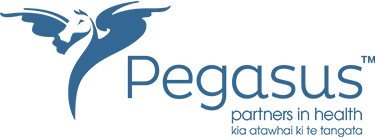Waltham Health Centre’s registered nurse Tracey, and recent graduate Kristen detail how proactive outreach and personalised care are leading to a boost in vaccination rates.
Running a successful immunisation programme requires a blend of proactive initiatives, precalls and recalls, and patient engagement. Waltham Health Centre (Waltham) is an excellent example of how these approaches can boost vaccination rates and promote community health.
Led by registered nurse Tracey, who has been at Waltham for nine years, and recent graduate Kristen, the practice uses a multifaceted approach that begins with proactive patient outreach. “Precall texts generate a positive response as we have well established relationships with our patients,” Tracey said.
Waltham also focuses heavily on opportunistic recalls. By checking patient due dates and eligibility for funded vaccinations ahead of appointments, they achieve excellent acceptance rates. This proactive approach extends to Waltham’s general practitioners who also leverage opportunistic recalls in patient consultations.
Educational sessions, and regular updates from Pegasus through quarterly reports keep the team informed and equipped to address an evolving immunisation schedule, updates and challenges. Additionally, communications from the Immunisation Advisory Centre (IMAC) ensure that Waltham stays up to date with immunisation best practices.
An example of this was Waltham’s approach to the recently funded Bexsero vaccination. Tracey and Kirsten prioritised and effectively caught up with the four year old cohort before they turned five, ensuring they did not miss out on funding eligibility. They then utilised the 18-month recalls to catch up the remaining tamariki in the funded group. This strategy highlights the importance of education as they were able to target priority groups and maximise vaccination coverage.
Waltham’s success is underpinned by their strong relationships with patients, an understanding of patient preferences and effective communication with families. For Māori and Pacific peoples with lower immunisation rates, the practice utilises a personalised approach, leveraging familial connections and face-to-face interactions with whānau to encourage vaccination uptake.
Waltham’s emphasis on proactive engagement and personalised care in their immunisation programme has led to high vaccination rates and improvement in community wellbeing.

